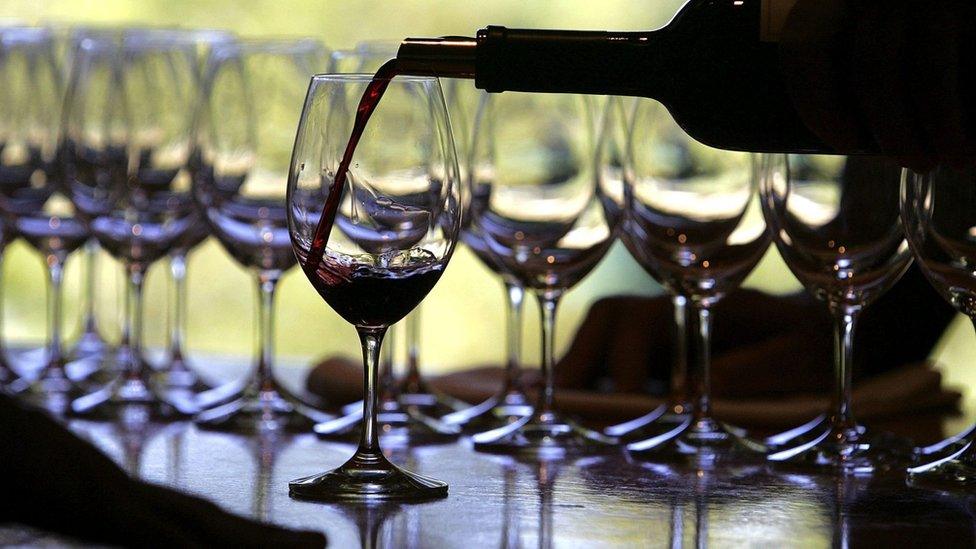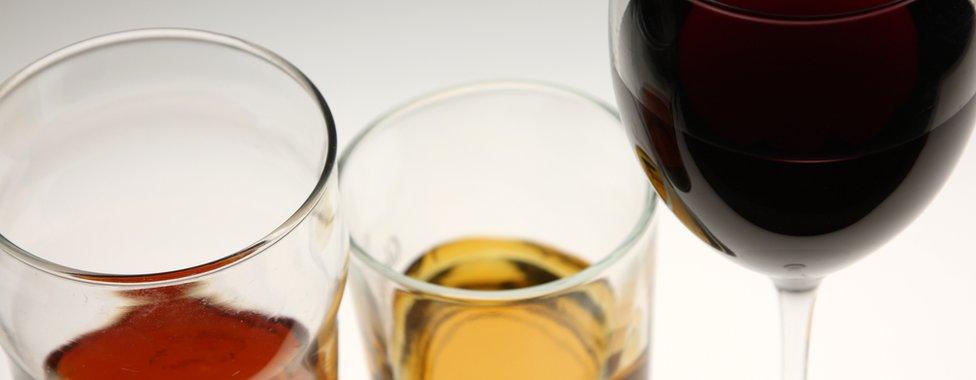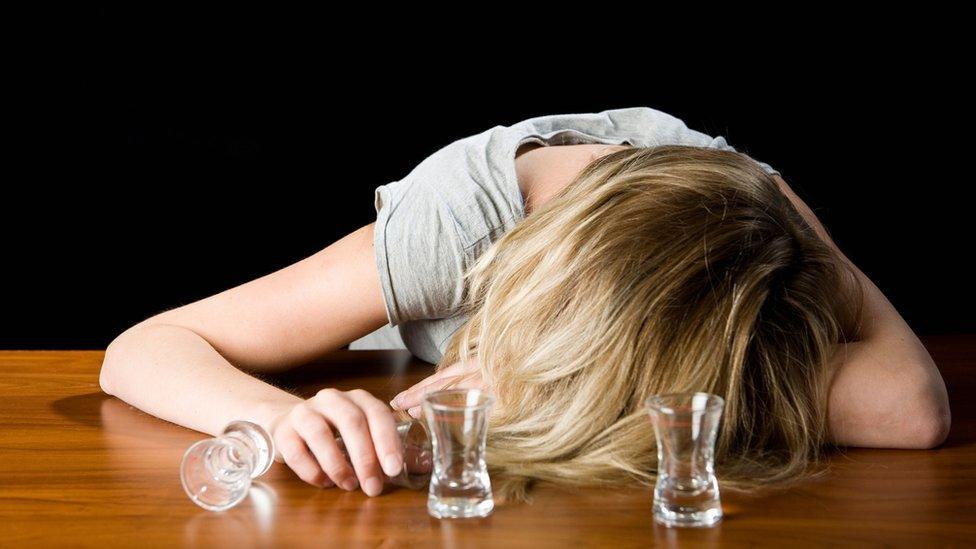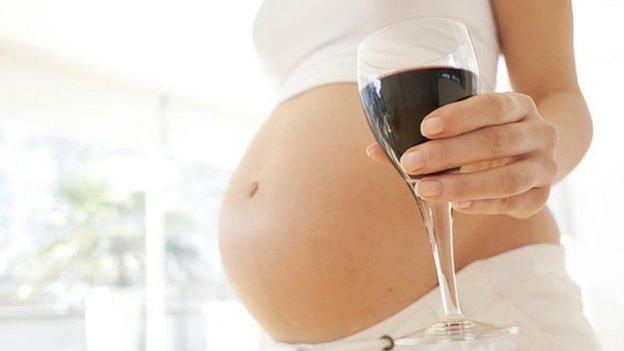Drinking limits guidance set to be changed after review
- Published

New advice on how much people in the UK should limit their drinking is to be issued following the first review of official alcohol guidance in 20 years.
Reports suggest the chief medical officer for England, Dame Sally Davies, will recommend abstaining from alcohol for at least two days a week.
The daily maximum intake for men could also be cut to the same as for women.
Currently, women are advised, external to drink no more than 2-3 units a day and men no more than 3-4.
According to newspaper reports, the review will stress there is no "safe" alcohol intake and even drinking small amounts could cause diseases such as cancer.
Scottish guidelines already advise people, external to abstain for at least two days a week.
The advice to be issued by Dame Sally will also be adopted by the chief medical officers for Northern Ireland, Scotland and Wales.
'Better choices'
Dame Sally's review was launched in 2013 after the Department of Health said it had heard "sufficient concerns" from experts to suggest a thorough examination of the evidence on alcohol and health risks was needed.
Updated guidelines on drinking in pregnancy and for young people were published in 2007 and 2009 respectively, but the last review of the advice as a whole was done in 1995.
The current guidance states that by sticking within recommended limits, there is "only a low risk of causing harm in most circumstances".
The recommended daily maximum for women of 2-3 units equates to no more than a standard 175ml glass of wine.
Men are told not to consume more than 3-4, not much more than a pint of strong lager, beer or cider.
Elaine Hindal, chief executive of alcohol education charity Drinkaware, said the updated advice would "help people make better choices" about their drinking.
"Our research suggests that aside from the well-known impacts on the liver, broader alcohol-related health risks such as hypertension, heart disease and some types of cancer, are not commonly understood by many people," she added.
Dr Sally Marlow, from King's College London, told the BBC a break from alcohol for several days had various positive effects.
"Alcohol, when you metabolise it in your liver, turns into a poison... and while it's a poison, it's in your system and messing your system up physically.
"But also psychologically. If you are drinking every day it becomes a habit and habits are really difficult to break."

What is a unit of alcohol?

One unit of alcohol is about half a pint of lower-strength lager, beer or cider (ABV 3.6%), or a single measure of spirits (25ml, ABV 40%)
A 175ml glass of wine (ABV 12%) is 2.1 units and a pint of strong beer (ABV 5.2%) is three units
A 330ml bottle of lager (ABV 5%) is 1.7 units
To work out how many units there are in any drink, multiply the total volume of a drink (in ml) by its ABV (which is measured as a percentage) and divide the result by 1,000
Source: NHS Choices, external

Dr Marlow said the new guidelines were likely to take into account the idea of an "acceptable risk".
"We drive cars knowing that we might have an accident, so are we prepared to accept the same level of risk when we have a drink?
"We accept that there is some risk associated with that, but the benefit in our own internal calculation is worth it."
In 2012, a report by the House of Commons Science and Technology Committee, external recommended advising the public take at least two alcohol-free days a week.
Dame Sally led the review in consultation with government officials in Scotland, Wales and Northern Ireland, and considered whether there could be merit in producing bespoke guidelines for certain groups, like older people, who may be particularly susceptible to alcohol harms.
Commenting on the reports, a Department of Health spokesman said: "The chief medical officer, with advice from a group of independent experts, has reviewed current drinking guidelines.
"The proposals will be published in the New Year."
- Published22 December 2015

- Published10 February 2015
